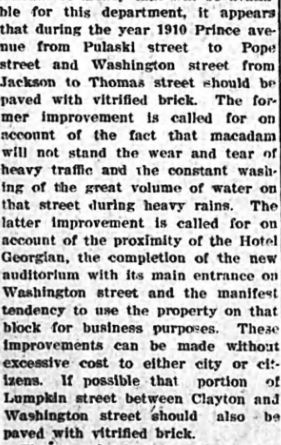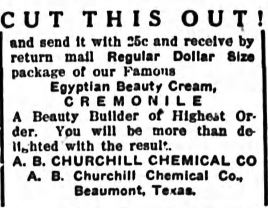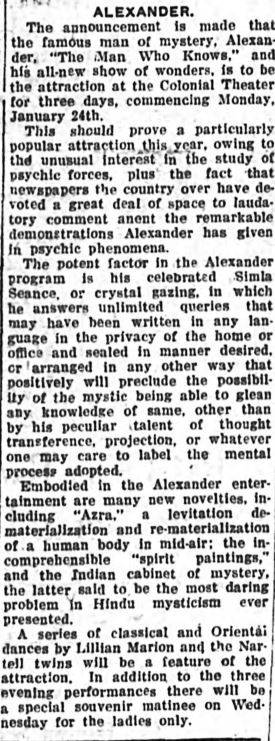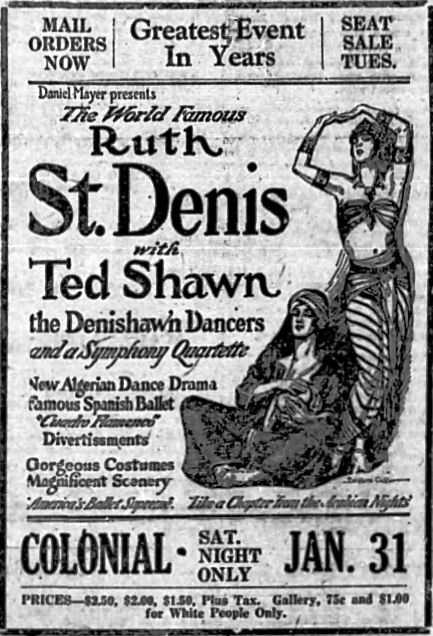This Month in Athens - January 2017
Welcome to the inaugural post of the Heritage Room's new This Month in Athens blog. This blog hopes to inform and entertain, all while highlighting the unique resources of the Athens Regional Library System and the ACCL Heritage Room. I intend to write mostly about the events in Athens with moments of contextualization linking Athens to larger national and international happenings. So, get your nerd hats on as we explore the 1910 mayoral inauguration, the history of spiritualism in Athens, and a history of the Colonial Theatre.
For more historic Athens newspapers, be sure to visit the Athens Historical Newspapers Archive on Galileo.
There’s a New Mayor in Town…

As detailed in this front-page article of the 1910 Athens-Banner, a new mayor was sworn in this month in Athens. Hugh Jackson Rowe, the newly elected mayor of Athens, replaced William F. Dorsey. Dorsey served as Athens mayor from 1906-1909. Rowe served as mayor from 1910-1913, until Dorsey was reelected in 1914. During this period of time a great number of public works projects were undertaken in the city of Athens. Dorsey had built several schools during his tenure, and as seen by Rowe’s inaugural address, Rowe wanted to continue Dorsey’s legacy.
Rowe took to the 1910 paper to express his goals for the city of Athens in 1910. Of top priority was the addition of a police patrol wagon. Secondary to this, Rowe had a major interest in keeping up Athens’ roads, praising the city streets in his inaugural address. “No city in the country has better streets,” he asserted.
The macadamized streets were apparently a cause of concern in 1910. The macadamization of roads, a brain child of Scottish engineer John McAdam, began around 1820. It is the result of crushed stones being layered and flattened to create a solid road surface. The National Road, the first major highway built by the United States, was macadamized. However, macadamized roads came with their own problems, including dust and debris stirred up by heavy traffic and the introduction of automobiles. One can imagine walking down a hazy Lumpkin, annoyed at the increasing traffic flowing to and from the Hotel Georgian and the new auditorium, wishing your new mayor would replace the road with vitrified brick, or at least do something about that giant pothole in the macadam. Rowe heard these concerns of Athenian motorists and pedestrians, advocating for the upgrade of Athens sidewalks as well. No longer were Athenians to trip over uneven brick sidewalks, no: Rowe was bringing granolithic sidewalks to Athens. Sounds like a pretty good inaugural address to me!
Rowe was born in 1869 and died in 1945. For a time he lived at 595 Prince Avenue, which now appears to be the parking lot of Piedmont College. If you are interested in learning more about H.J. Rowe or other mayors of Athens, I would recommend looking at his book “History of Athens and Clarke County,” published in 1923. It is located in the Heritage Room, with a call number of GR 975.818 Clarke ROWE 2000
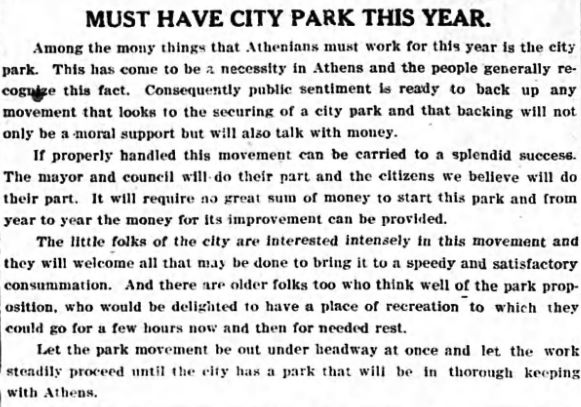
Also of note in this January 1910 issue of the Banner-Herald is the push for a public park in Athens, as well as a street car line extension. The early 20th century was a time of growth in Athens, the need for more durable roads and more accessible transportation grew with its population. From 1900 to 1910 the population of Athens grew by 4,668 people, from 10,245 to 14,913. This explosion in population clearly drove Mayor Rowe’s appeal for more roadway construction.
Check out this publication from the Georgia Department of Transportation for more information about the history of street cars in the state.
Of note is the only remaining trolley stop in Athens. Designed in Queen Anne style with a red roof, it sits at Cedar and South Lumpkin Street and has been recommended for inclusion in the National Register of Historic Places. Check it out next time you drive through campus, it’s a pretty building and has been well-preserved.
As far as the public park is concerned, we will save the history of that for another post. A cursory glance at the Banner-Herald archives reveals an extensive public discussion about the merits of building the city’s first park, continuing months into Rowe’s term.
What's for sale?
Cremonile! From 1919. Totally strange.
I don’t know what exactly this is but if you find any at an estate sale it is probably expired.
Spiritualism is en Vogue
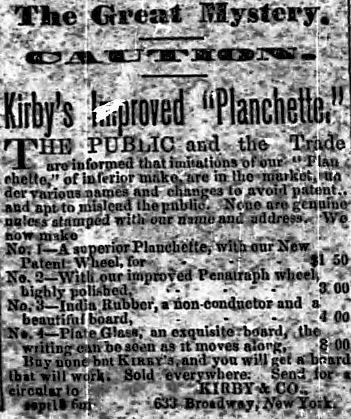
Kirby’s Planchette is in an 1869 issue of the Southern Banner. Would you like to summon some mail-order spirits? If so, Kirby’s Planchette is for you! The Great Mystery! Caution!
Planchettes rose in popularity after an 1867 article in an English newspaper, stating that the author had used one to contact the dead and engage in automatic writing (writing divined from a deceased spirit.) The plastic triangle used with a Milton Bradley Ouija Board is a planchette, and it can be used with or without a board.
Spiritualism and its physical trappings were quite popular in the years leading up to and following the Civil War. Popular interest in contacting the dead was largely roused in part due to the antics of three sisters from outside Buffalo, New York. The Fox sisters of Hydesville, Leah, Maggie, and Kate became the most popular mediums of the day. In 1848 the two youngest sisters began hearing raps throughout their farmhouse, which they attributed to the aggrieved spirit of a traveling salesman buried in the basement. Dozens of neighbors visited the Hyde homestead to hear the mysterious raps, eventually leading to a public demonstration of the teenage girls’ “ability” to communicate with the dead. As always, there were skeptics, who believed they were finally vindicated in 1888 when Maggie “confessed” that she and her sisters had been making the noise.
In an interview with the New York World, Maggie stated: “My sister Katie and myself were very young children when this horrible deception began. At night when we went to bed, we used to tie an apple on a string and move the string up and down, causing the apple to bump on the floor, or we would drop the apple on the floor, making a strange noise every time it would rebound.” The sisters went from apple dropping to cracking their knuckles and toes to make rapping sounds. “A great many people when they hear the rapping imagine at once that the spirits are touching them, it is a very common delusion. Some very wealthy people came to see me some years ago when I lived in Forty-second Street and I did some rappings for them. I made the spirit rap on the chair and one of the ladies cried out: ‘I feel the spirit tapping me on the shoulder.’ Of course that was pure imagination.” Read more at http://www.smithsonianmag.com/history/the-fox-sisters-and-the-rap-on-spiritualism-99663697/
Weird!
Interest in spiritualism did not wane after the confessions of the Fox girls, rather, the physical trappings of mysticism increased after the American Civil War. Many Americans, eager to assuage the pain of losing loved ones in battle, turned to spiritualism as a way to reconnect with their relatives. Planchettes, talking boards, and tarot cards became common parlor objects, used to entertain after dinner. Kirby’s planchette is probably the most popular planchette ever sold in the United States.
You can find out more information about planchettes and the history of spiritualism at the exhaustive website http://mysteriousplanchette.com/
In Athens, interest in spiritualism continued into the 20th century. In this 1903 issue of The Banner, a noted spiritualist from Augusta, Ga., Mrs. Rebecca P. Ward visited the home of Mrs. S. O. Hutcheson of 512 College Avenue. Mrs. Ward apparently predicted the hour of William McKinley’s assassination, and if that isn’t psychic talent, I don’t know what is.
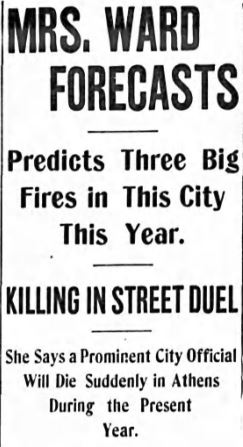
I attempted a fact-check of Ms. Ward’s 1903 predictions for the City of Athens. A quick search of the Historic Athens Newspapers found that there were no duels with policemen reported in the newspaper. There was one cotton fire but it did not result in much property damage or any loss of life. I found Mrs. Ward in a 1908 Augusta city directory on AncestryLibrary and she lists herself as a clairvoyant and offers her psychometric services. I imagine she bragged about the McKinley prediction for the rest of her life.

In 1921, at the Colonial Theatre, Alexander, The Man Who Knows, performed several well-attended shows. Alexander (1880-1954) was incredibly popular for his séances and crystal ball gazing. Biographer David Charvet asserts that Alexander was the highest-paid mentalist of the 1920s, having had a hand in the creation of several electricity-based illusions which went on to be commonplace in illusionist performances of the 1930s. He likely made millions of dollars during the peak of his popularity.
The Colonial Theatre was built by Jewish businessmen Moses and Simon Michael across the street from the Georgian Hotel, where the Boar's Head Lounge is today. It was built in 1886 as the Opera House, originally seating over 1,000 theatre-goers. It was remodeled in the early 1900s to include more seating and hosted movies, vaudeville performances, and other entertainments of the day. Of note is a visit several days after Alexander by Denishawn Dance School pioneer Ruth St. Denis, generally credited as one of the pivotal figure in modern American dance. The New York Public Library hosts the papers of Ruth St. Denis and their website includes their holdings and a biography.
The Colonial did not fare well after the Depression, as ticket prices became unaffordable and fewer touring shows going on the road. After a balcony collapse in 1932, the theatre was demolished, and the Boars Head Lounge was built (just kidding, it certainly hasn’t been around since 1932).
For more information on the Michael brothers, you can check out this useful article from the Institute of Southern Jewish Life: http://www.isjl.org/georgia-athens-encyclopedia.html
That's all for this month. Check us out next month for a further exploration of Athens' first public parks, and don't forget to check out the Heritage Room for all of your local history and genealogical needs.



